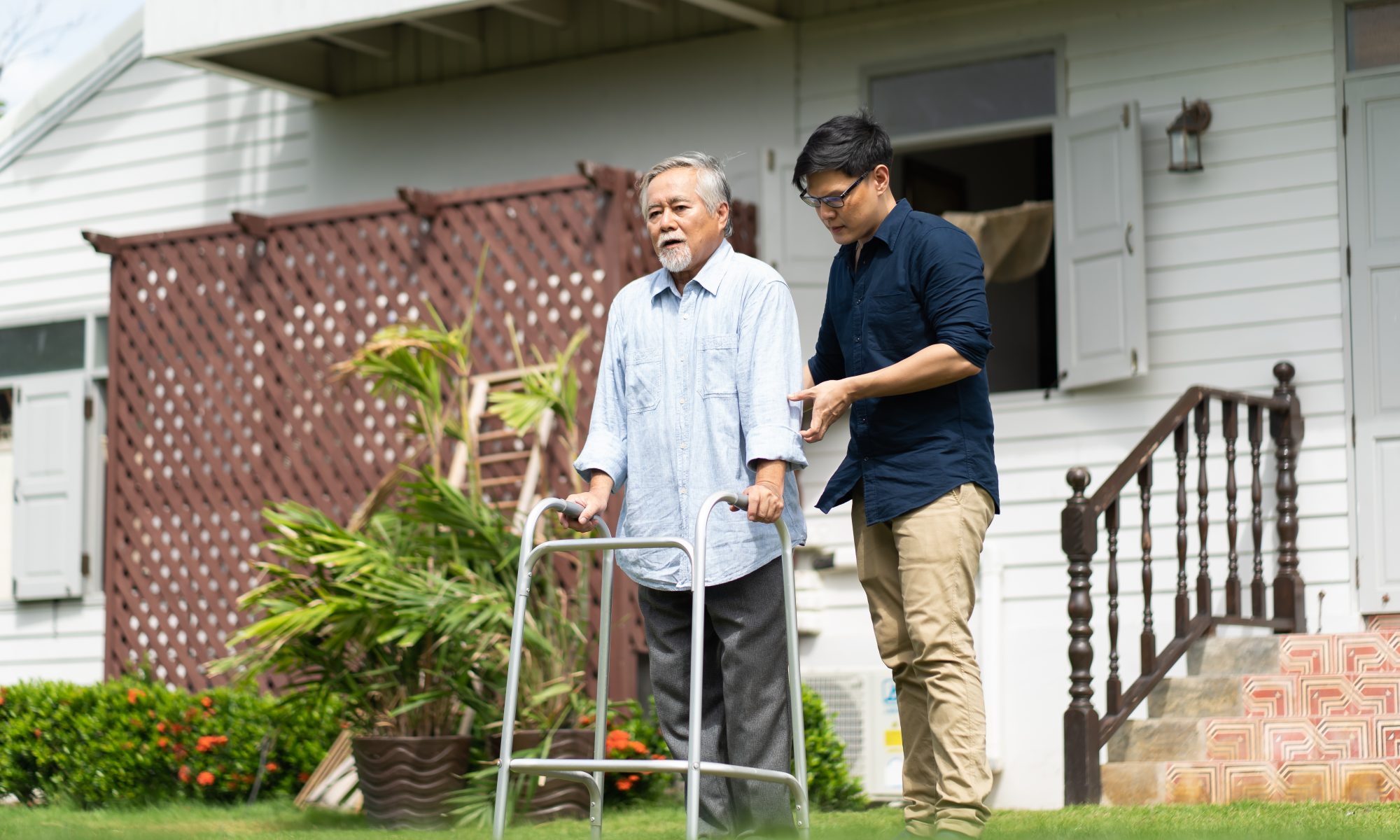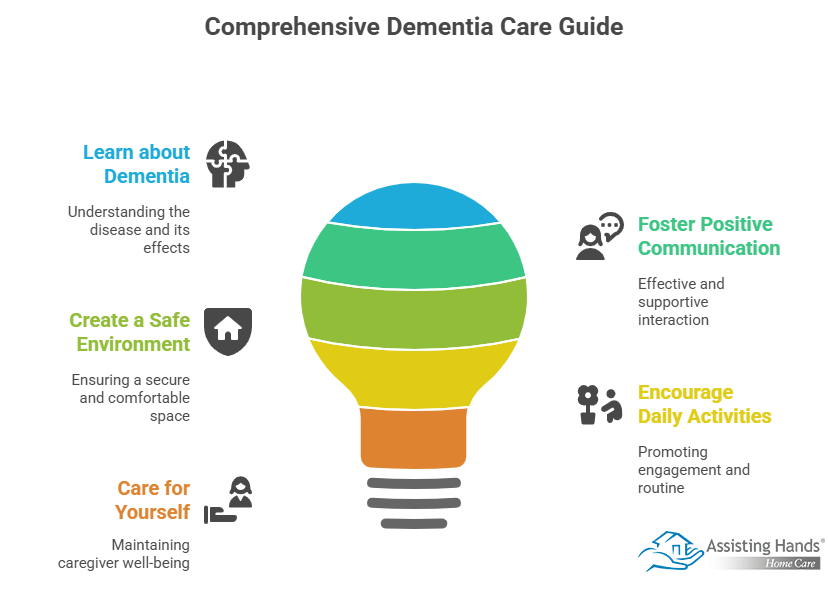
Table of Content
Dementia affects millions of families worldwide, bringing unique challenges for both seniors living with it and their caregivers. Providing care requires patience, understanding, and knowledge about the condition to ensure your aging loved one feels supported and safe. Below, we’ve outlined practical tips to help you care for a loved one living with dementia, covering essential aspects of communication, safety, and daily routines.
Learn about Dementia and Its Effects
Learning about dementia is the first step to providing effective care. Dementia isn’t a single condition but a broad term describing symptoms that affect memory, thinking, and social abilities. It’s important to understand the condition will progress over time, and its impact can vary widely from person to person. Knowledge about the stages of dementia and how they might affect your loved one’s daily life can help you adapt your care approach accordingly.
Take time to research the specific type of dementia your loved one is diagnosed with, such as Alzheimer’s disease or vascular dementia, as this will offer deeper insights into how to support him or her effectively. Equip yourself with reputable resources, or consider attending dementia-specific caregiver workshops.
Caring for a loved one with dementia can be challenging, but compassionate help is available. If your senior loved one has been diagnosed with a serious condition and needs help with tasks like meal prep, transportation, bathing, and grooming, reach out to Assisting Hands Home Care, a leading provider of homecare families can trust. We also offer comprehensive care for seniors with dementia, Alzheimer’s, and Parkinson’s.

Foster Positive Communication
Communication can become challenging as dementia progresses, but adopting the right approaches can help you maintain clarity and connection. Keep these tips in mind:
- Speak simply – Use short sentences and clear, simple language. Avoid complex questions or information overload.
- Be patient – Allow extra time for your loved one to process what you’ve said and to respond. Don’t rush or interrupt your loved one.
- Use nonverbal cues – Tone of voice, facial expressions, and gestures become increasingly important, as verbal skills may decline.
- Stay positive – Focus on kindness, maintain eye contact, and offer a calming presence to increase your loved one’s comfort during interactions.
Adapt your communication style as your loved one’s needs change to ensure he or she feels heard and understood even when words become difficult.
Create a Safe and Supportive Environment
Seniors living with dementia may find it difficult to process their surroundings, leading to confusion or anxiety. By creating a secure and structured environment, you can help your loved one feel more at ease.
- Eliminate hazards – Remove objects such as loose rugs, sharp items, or clutter that may lead to accidents. Ensure stairways and walkways are clear.
- Ensure proper lighting – Bright, even lighting minimizes shadows, reducing confusion or fear.
- Label items clearly – Use labels, signs, or color coding to help your loved one locate everyday items like the bathroom, kitchen, or bedroom.
- Establish a routine – Regular routines foster familiarity and stability, which can reduce stress for your loved one.
A well-thought-out environment can significantly increase your loved one’s comfort and safety, especially as his or her needs evolve.
A highly trained caregiver with experience in caring for seniors with dementia can be a fantastic resource for family members. Families looking for top-rated Potomac elderly home care providers can reach out to Assisting Hands Home Care. From respite care to specialized Alzheimer’s, dementia, stroke, and Parkinson’s care, there are many ways we can make life easier for seniors and their loved ones.
Encourage Daily Activities and Engagement
Maintaining engagement and a sense of purpose is vital for individuals living with dementia. Structured, enjoyable activities can stimulate their cognitive functions while enhancing their overall wellbeing.
- Choose familiar activities – Engage your loved one in hobbies he or she has always loved, whether it’s gardening, painting, or listening to music.
- Promote physical activity – Gentle exercises like walking or stretching can boost mood and physical health.
- Simplify tasks – Break activities into smaller, manageable steps to match your loved one’s abilities.
- Encourage social interaction – Collaborate with family or join dementia-friendly community programs to help your loved one stay connected to others.
Adjust activities to your loved one’s level of cognition and physical ability, focusing on experiences that bring him or her joy and comfort.
Care for Yourself as a Caregiver
Caring for a loved one with dementia can be emotionally and physically demanding. To provide the best support, you must also care for yourself.
- Ask for help – Don’t hesitate to involve family members, friends, or professional caregivers. Delegating tasks can provide you with necessary breaks.
- Join support groups – Connecting with others facing similar challenges can be comforting and provide valuable insights.
- Practice self-care – Set aside time for activities that relax and recharge you, such as exercise, meditation, or reading.
- Know your limits – Recognize signs of caregiver burnout and seek professional support when needed.
Prioritizing your wellbeing ensures you can continue to care for your loved one effectively while maintaining your own health and resilience.
Even when families have the best intentions, caring for a senior loved one with dementia can be challenging. Fortunately, Assisting Hands Home Care is here to help. We are a leading provider of dementia care. Potomac families can take advantage of our flexible and customizable care plans, and our caregivers always stay up to date on the latest developments in senior care. To learn more about our reliable, compassionate in-home care services, contact us today.






